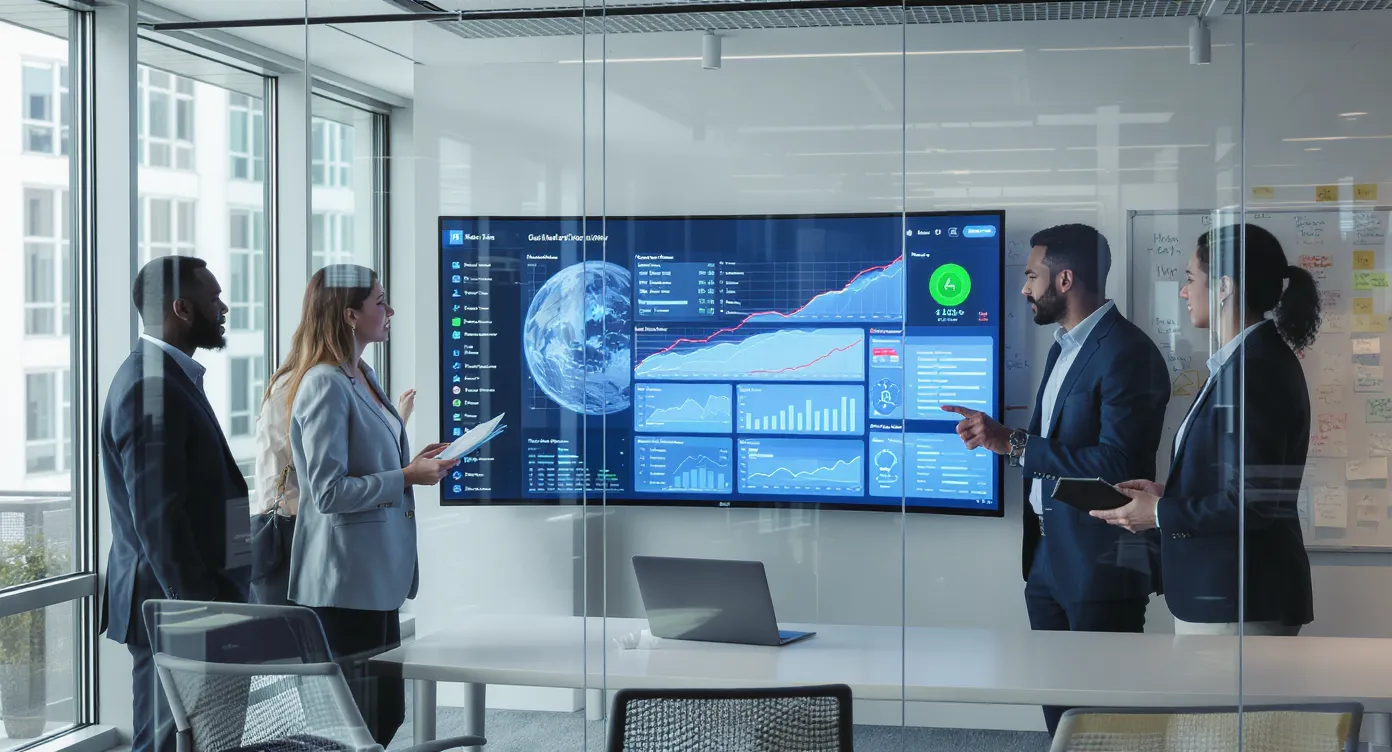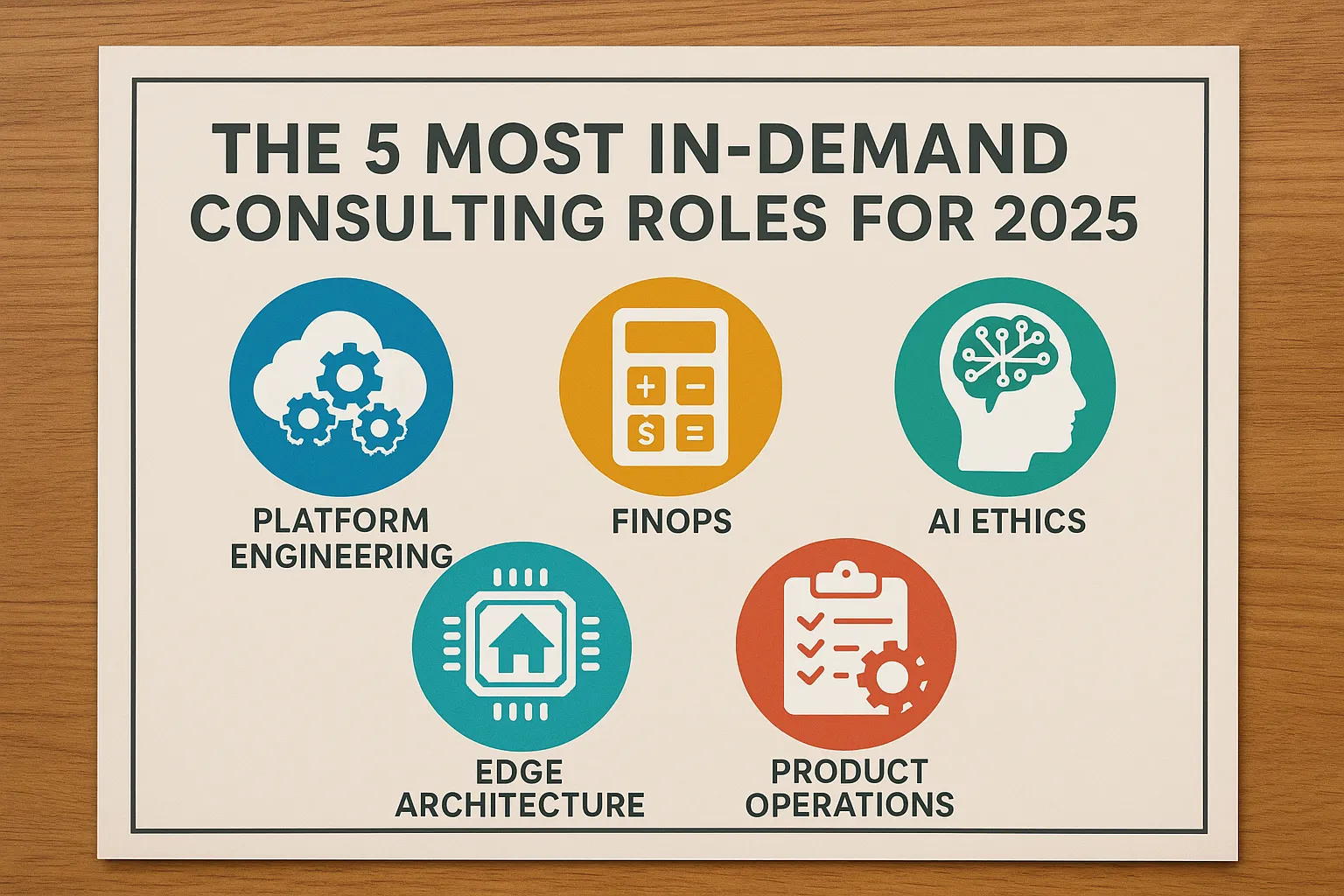
Staying ahead of technology curveballs has always been part art and part science, but the pace of change heading into 2025 is outright dizzying. Analysts at Gartner estimate that worldwide IT spending will top $5 trillion next year, with consulting services responsible for the sharpest year-over-year jump in more than a decade. That growth is not just more of the same. New delivery models, fresh talent profiles, and emerging risks will fundamentally alter what organisations should expect when they engage a consulting partner.
The Consulting IT Services Landscape in 2025
The forces shaping the next 12 months fall into three intersecting categories:
- Technology breakthroughs that demand new expertise (for example, generative AI and edge computing).
- Market pressures for faster, more measurable business outcomes.
- Regulatory and societal shifts around data protection, sustainability, and workforce distribution.
Put simply, 2025 will not reward lift-and-shift approaches or one-off transformation projects. Instead, IT consulting will revolve around continuous product thinking, platform resilience, and value stream optimisation.
Key Technology Drivers
| Driver | Why It Matters for Consulting Engagements | Practical Example |
|---|---|---|
| Generative AI & Autonomous Ops | McKinsey predicts up to USD 4.4 trillion in annual productivity impact. Consultants must integrate LLMs responsibly, addressing governance and bias. | Building an AI-augmented incident response runbook that cuts mean time to resolution in half. |
| Cloud-Native & Edge Computing | IDC expects 65 percent of enterprise workloads to run on the edge by 2026. Multi-cloud complexity fuels demand for platform engineering and SRE expertise. | Designing a GitOps pipeline that deploys microservices to both AWS and on-prem Kubernetes clusters. |
| Zero Trust Cyber Resilience | New EU NIS 2 directives and US Executive Orders tighten security baselines. Consulting will include compliance blueprints and secure-by-design product audits. | Implementing Just-in-Time privileges and automated evidence collection for auditors. |
| Data Ethics & Governance | Legislators in at least 16 countries are drafting AI accountability laws. Clients need frameworks for explainability and consent management. | Creating a data-lineage dashboard that tracks PII usage across microservices. |
| Sustainable IT & FinOps | ESG reporting rules make carbon accounting mandatory for large firms. Consultants will pair cost optimisation with green ops. | Re-architecting workloads to spot instances and renewable-powered regions, then visualising CO₂ savings. |

New Engagement Models You Will Encounter
Traditional time-and-materials contracts are giving way to hybrid structures that better align incentives with business outcomes.
-
Product-centric retainers: Rather than scoping a static requirements list, the consultant joins your product leadership group, owning key OKRs such as uptime, churn, or feature lead time.
-
SRE-as-a-Service accelerators: A fractional team of site reliability engineers embeds proven runbooks, error budgets, and observability tooling, then transitions operations to your staff within 6–12 months.
-
Outcome-based SLAs: Payments hinge on objective metrics, for example, 30 percent faster release cadence or 40 percent reduction in infrastructure cost per transaction.
-
Capability academies: Hands-on workshops paired with shadowing periods so internal engineers can eventually run the show. Look for curricula that map to recognised frameworks such as DORA or FinOps.
| Classic Model | 2025-Ready Model |
|---|---|
| Statement of work with rigid deliverables | Iterative roadmap with quarterly value checkpoints |
| Staff augmentation | Cross-functional squads carry both build and run responsibilities |
| “Go-live” milestone ends engagement | Continuous improvement backlog and shared KPIs |
The Skills and Roles in Highest Demand
Recruiting is the single biggest cost component in many consulting contracts. Knowing which specialised roles will matter helps you gauge whether a proposal is realistic.
- Platform Engineer: Bridges DevOps, security, and developer experience to build golden pipelines and self-service infra.
- FinOps Analyst: Tracks spend, performance, and carbon footprint, converting raw usage data into executive-level insights.
- AI Ethics Lead: Defines guardrails, monitors model drift, and ensures compliance with emerging AI legislation.
- Edge Architect: Designs distributed topologies that minimise latency while keeping data sovereignty intact.
- Product Operations Manager: Aligns product metrics with financial goals, turning raw telemetry into roadmap priorities.
According to a 2024 Forrester survey, enterprises that combined platform engineering and FinOps expertise in a single engagement achieved a 26 percent faster payback period.

Budgeting and ROI Expectations
Price tags vary widely, but trendlines point to more transparent cost structures:
- Subscription-style retainers often start around USD 30,000 per month for a three-to-five-person squad with mixed seniority.
- Outcome-or value-based deals typically reserve 15–25 percent of the total contract value for achieving stretch targets.
- Training add-ons (bootcamps, coaching sessions) run between USD 1,500 and USD 3,000 per learner, depending on lab complexity.
The metric that matters is payback period. Use this simple formula:
Payback (months) = Total Engagement Cost / Monthly Realised Benefit
Aim for a payback under 18 months in capital-intensive sectors, and under 12 months for digital-first businesses.
Questions to Ask Before You Sign in 2025
- How does your team incorporate AI responsibly, and can you show model audit logs from prior engagements?
- What is your strategy for managing multi-cloud drift and policy as code at scale?
- Which KPIs will define success, and what portion of your fee is at risk if we miss them?
- Will your consultants pair with our engineers, and if so, what is the planned knowledge-transfer timeline?
- How do you calculate and report the carbon footprint of your proposed architecture?
Taking the time to align on these points protects you from surprises and accelerates time-to-value.
How Knokio Positions Clients for 2025 and Beyond
At Knokio, our consulting practice is built around the belief that product thinking, SRE principles, and measurable business outcomes must coexist from day one. Led by Diogo Figueiredo, who brings 13 years of DevOps and product management experience, we offer:
- Cloud and DevOps transformation programmes anchored in GitOps, Kubernetes, and observability by default.
- Product consulting that turns vague feature ideas into validated backlogs, complete with experiment playbooks.
- Custom capability academies that upskill teams in platform engineering, SRE, and AI governance.
If your 2025 roadmap demands faster releases, stronger reliability, or a clearer path to ROI, we can help. Reach out via our contact page to schedule a discovery session.
Final Thoughts
Consulting IT services are evolving from project-based helpers into long-term product partners. Expect tighter alignment with business metrics, deeper specialisation, and an unrelenting focus on sustainable, AI-powered operations. By updating your vendor criteria and internal skill sets now, you will be ready to capture outsized value in 2025 instead of playing catch-up.